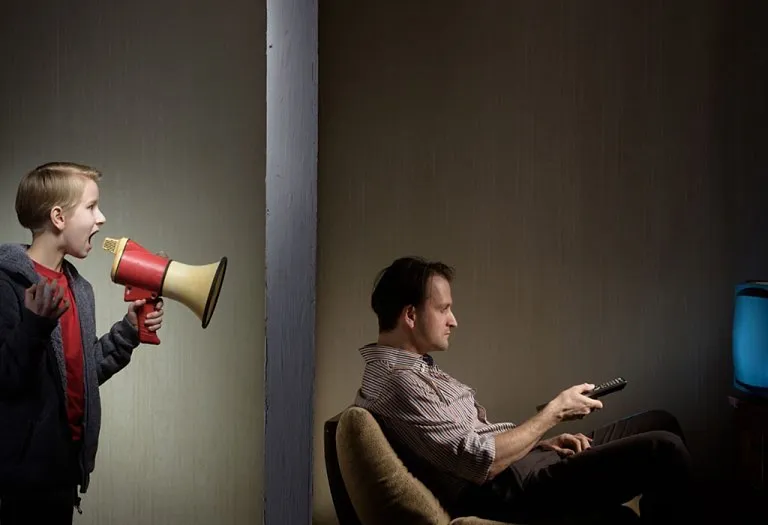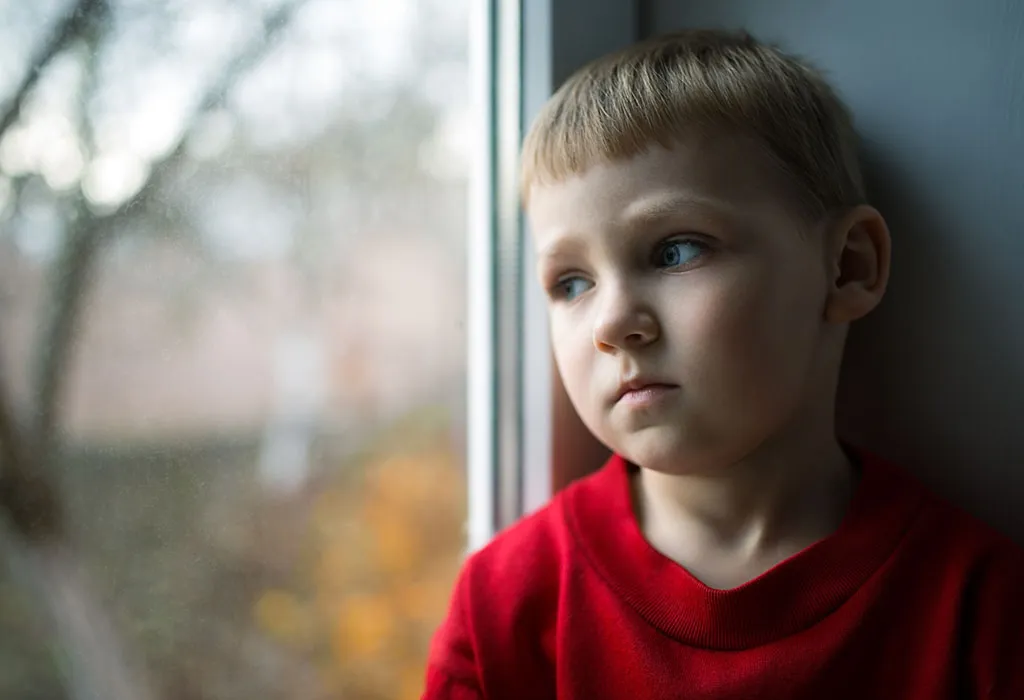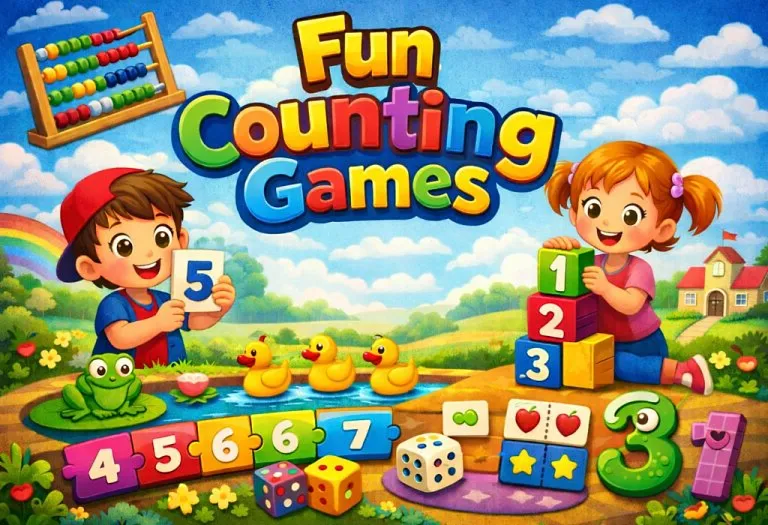Uninvolved Parenting Style: Characteristics, Examples, Pros & Cons

Where some parents may be overly involved in bringing up their children, others may have the exact opposite way of parenting. However, the trick is to have the right balance between the two. Where being overly protective and having a loving attitude towards your kid may have its adverse impact on the development of your kid, uninvolved parenting may also have its negative impact on the overall development of your child too. Interested in knowing more about the latter style of parenting? We recommend you to read the following article, as we shall be discussing neglectful or uninvolved parenting style, its features and how it may impact your child.
What Is Uninvolved or Neglectful Parenting?
As the name suggests, uninvolved or neglectful parenting is a style of parenting in which parents may have minimal or no involvement in their kid’s overall needs. In other words, in this style of parenting, the parents have the least involvement in the emotional, physical, academic or other important aspects of their child’s life and they may just provide for the bare or basic aspects of their child’s life such food, shelter, clothing etc. (1)
How Common It Is
Uninvolved parenting is relatively rare in the U.S., but it still affects a notable portion of families. Research indicates that this parenting style occurs in approximately 12.5% to 23% of cases, based on a 2010 study published in the Journal of Adolescent Health. The study, conducted by Berge and colleagues, examined the link between parenting styles and adolescent weight-related behaviours. It also revealed that fathers were more likely than mothers to exhibit neglectful parenting tendencies.
Characteristics of Uninvolved Parenting Style
Here are some of the characteristics of a neglectful parenting style (2):
1. Parents Too Occupied in Their Own Life
When the parents are too tied up in dealing with the issues in their lives such as their professional, social or emotional issues, they might unwittingly resort to uninvolved parenting. They may be too occupied in solving their problems and concerned about their lives that they may have the least interest in their child’s life.
2. Inappropriate Supervision
Sometimes parents may adopt either of the extreme approaches: they may either be too lenient towards their kid and may not know what he may be doing, or they may be too strict that they may restrict their kid’s social involvement.
3. Lack of Emotional Attachment to Their Kid
Parents may not feel emotionally attached to their kids and may just provide for their basic needs. They may not know what is going on in their kid’s life, what their kid may be doing in school, how many friends he may have and various such emotional aspects of their child’s life.
4. Substance Abuse
If parents are addicted to any illegal drugs, alcohol or any other abusive substance, it may make them uninvolved or neglectful towards their child.
5. No or Minimal Expectation From Their Kid
Such parents may not at all be concerned and bothered about their kid’s achievements in various spheres.
6. Parents May Not Show Affection
Such parents may not express their love towards their kids by hugging, kissing or by any other ways. They may have an indifferent attitude towards their child.
Why Do Parents Usually Adopt a Neglectful Parenting Style
Is it sheer negligence on parent’s part that may make them such kinds of parents or is there more to it? Let us find out why parents adopt this kind of parenting style:
1. For the Betterment of Their Kid
Believe it or not but some parents may think that this kind of parenting may make their kid tough and strong and may help him face the various challenges of life.
2. Unaware of Their Responsibility
If the parents may not be sure what they are expected to do or not do for their kid, it may cause confusion and thus indifferent attitude towards their kid.
3. Selfish or Self-centred Approach
Some people are too self-obsessed and are least concerned about the needs and well-being of others, and that may include their kids too.
4. Challenging Lifestyles
Sometimes parents may have certain lifestyles that may make it difficult for them to have time for their kids.
5. If They Themselves Suffered the Same
If the parents faced a similar kind of parenting style, it is quite likely that they may follow the same style too.
What Are the Effects of Uninvolved Parenting on a Child?
Negligent parenting style may affect a child in more than one way, and some of the effects of neglectful parenting on a child may include the following:
Positive Effects
- Children may develop strong independence and self-reliance from having to figure things out on their own from an early age (3).
- They might become highly adaptable to different situations, as they’ve learned to navigate life without constant parental guidance.
- Some kids grow up to be very resourceful, finding creative solutions to problems since they couldn’t always depend on adults.
- They may develop a strong sense of empathy, understanding what it feels like to be unsupported, and become more compassionate toward others.
- These children often learn to trust their own instincts and judgment since they’ve had to make decisions without parental input.
- They might become highly observant, picking up on social cues and environmental details to compensate for a lack of parental direction.
- Some develop exceptional problem-solving skills by facing challenges alone and learning through trial and error.
- They may become less materialistic, valuing relationships and experiences over possessions, since emotional support was scarce.
- These children often grow into adults who don’t take kindness for granted, deeply appreciating genuine care when they receive it.
- They might develop resilience to adversity, having learned early that setbacks are temporary and can be overcome.
Negative Effects
- Girls may turn out to be emotionally weak and may not have successful relationships in life. They may always look for affection and love.
- Boys, on the other hand, may not be able to make decisions and may not even turn out to be good dads themselves.
- Due to a lack of guidance, the children may feel lost and directionless. They turn out to be disillusioned and may rely on others for the same.
- If the kid does not feel loved, it may adversely impact their psychological development (4).
- In a situation where there is no order or rules in the house, the child may find it difficult to follow the rules elsewhere too.
- If the child feels detached and unloved, he may drift to substance abuse, and if parents are into it, the risk may become higher for the kid (5).
- Due to the lack of adult supervision and guidance, a child’s personality may not fully develop, and the kid may struggle to find his personality.
- Children who face perpetual neglect may develop various physiological disorders, such as depression (6).
- As kids do not always know how to deal with emotions, they may exhibit extreme emotions such as fear, anxiety, etc.
- If the kids are not cared for and nurtured well, they may have to take care of themselves; this may make them lose their innocence.
How Neglectful Parenting Is Different From Other Parenting Styles
Uninvolved parenting stands apart from other parenting styles due to its complete lack of both expectations and emotional support. Unlike authoritative parents who balance high standards with warmth, authoritarian parents who enforce strict rules without warmth, or permissive parents who offer affection without structure, neglectful parents provide neither guidance nor nurturing. Research identifies uninvolved parenting as uniquely disengaged – these parents often fail to meet even basic physical and emotional needs, showing little interest in their child’s development. While other parenting styles involve some level of interaction (whether controlling, supportive, or indulgent), neglectful parenting is characterised by profound indifference, making it potentially the most harmful approach to child-rearing. Studies suggest this style can lead to significant developmental challenges, as children receive neither the structure of demanding parenting nor the security of responsive caregiving.
Examples of Uninvolved Parenting
The following are some examples that may help you understand this parenting style:
- Example 1: Your kid is back from a picnic with friends for the entire day. You do not ask him anything about his day or ask him whether he had fun with his friends.
- Example 2: Your kid has a lot of homework and a big project that he needs to finish before the deadline. Your kid is too worried and tense about the whole issue, and you do not offer to help or console him.
- Example 3 Your kid comes back home after a long day at school. You neither welcome him nor offer him a good nutritious meal. Rather, you expect him to heat up his own food and have it.
- Example 4: You have a very demanding job that takes most of your time, and you do not spend time some quality time with your child.
How to Come Out of an Uninvolved Parenting Style
Once you have become the victim of this parenting style, so does that mean that you cannot undo the effects? Well, you may not be able to undo what’s done, but you can certainly make certain amends and come of this negative style of parenting. Following are some tips that may help:
- Express love to your kids, let them know they are loved and valued.
- Encourage your kids to make decisions, offer them solutions if you feel they may falter.
- If you find your child not active, sad, gloomy or feeling low, talk to your kid and try and find out the reason for the same.
- No matter how busy you may be with your life, always find time for the kid and spend some quality time together.
- Open the channels of communication with your kid and do not be unapproachable. Be available to your kid when he needs you.
- If you think you may not be able to get out of this parenting style, you may seek the help of a professional.
When to Seek Professional Help
Here are clear signs indicating when to seek professional help in the case of uninvolved fathers and mothers:
- Basic needs are neglected – The child consistently lacks adequate food, shelter, hygiene, medical care, or safety supervision
- Emotional detachment persists – The parent shows no interest in the child’s life, achievements, or struggles over an extended period
- Developmental delays appear – The child shows significant lags in speech, social skills, or cognitive development due to a lack of stimulation
- Behavioural issues escalate – The child exhibits extreme aggression, self-harm, withdrawal, or other concerning behaviours
- Parental incapacity is evident – Due to substance abuse, untreated mental illness, or other severe impairments preventing proper care
- School problems emerge – Chronic absenteeism, plummeting grades, or teachers report the child seems uncared for
- The child expresses distress – Verbalising feelings of abandonment, acting as their own caregiver, or showing attachment disorders
FAQs
1. Do uninvolved parents experience guilt or self-awareness about their style?
Surprisingly, some neglectful parents rationalise their behaviour as “giving freedom,” while others (especially those with depression or trauma) may feel shame but lack the tools to change. Neuroimaging studies suggest their brains might even suppress emotional responses to parenting cues.
2. Can pets or siblings mitigate the effects of uninvolved parenting?
Emerging research shows that bonds with pets, older siblings, or even mentors (like teachers) can partially compensate for parental neglect by providing emotional security, though they can’t fully replace engaged caregivers.
3. Could uninvolved parenting be mistaken for neurodivergent parenting styles?
Some parents with undiagnosed ADHD or autism may appear neglectful due to struggles with executive function or social reciprocity, while actually loving their child.
There is no doubt that parenting may be pretty daunting for the parents, but this certainly does not mean that you neglect your kid. If you feel that you are not able to handle the pressure of parenting or not able to do it properly, you should reach for professional help.
References/Resources:
2. Human Life International – The Uninvolved Parenting Style
3. National Library of Medicine – Types of Parenting Styles and Effects on Children
4. IOSR Journal Of Humanities And Social Science – Psychosocial Consequences of Parenting
6. MDPI – Consequences of Parenting on Adolescent Outcomes
Also Read:
Authoritarian Parenting
Positive Parenting
Parents Role in Child Development
Overprotective Parenting for Your Children
Best Ways to Improve Your Parenting Skills
Was This Article Helpful?
Parenting is a huge responsibility, for you as a caregiver, but also for us as a parenting content platform. We understand that and take our responsibility of creating credible content seriously. FirstCry Parenting articles are written and published only after extensive research using factually sound references to deliver quality content that is accurate, validated by experts, and completely reliable. To understand how we go about creating content that is credible, read our editorial policy here.
















.svg)
















